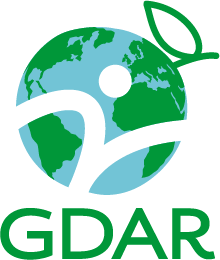We will seek to better understand the capacity of community, policy and commercial institutions in Cameroon, Kenya, Jamaica, Nigeria and South Africa to adapt to syndemic hazards to diet and physical activity.
A comprehensive approach to NCD prevention requires collaboration across sectors that influence built and food environments. Many key actors are outside the health and healthcare sector, including agriculture, education, commercial food production and retail, trade, urban development, building and construction, transport and sports industries.
In many low and middle income countries, urbanisation is often only partially regulated, with a large informal settlements and processes. There is also a large informal food sector. This is partly shaped by the formal food economy, but also has many elements beyond the formal food industry.
Climate change and urbanisation are influencing the roles of different actors involved in the built and food environments. For instance, the commercial sector is playing a growing role in shaping these environments in a way that can support or undermine healthy diets and physical activity. This role can be amplified during climate-related emergencies. For instance, as part of corporate social responsibility activities in emergency responses, these companies may market unhealthy foods, sometimes in partnership with government.
The challenges wrought by these global changes may appear insurmountable. However, experiences of collaborations across different sectors in GDAR partner countries in response to COVID-19 has hinted at the possibility of actions, previously considered radical, that could addressing the treat of non-communicable diseases and climate change.
Research approach
We are building on existing GDAR analysis on the integration of healthy diets and active living into food and urban policies. The aim is to apply a syndemic approach to further explore how policies and actions could promote and protect healthy diets and active living that are resilient to unplanned urbanisation and climate change.
We will analyse policy documents and practices. We will examine the extent to which food environment related policies address the disruption of climatic hazards – such as hurricanes, drought and epidemics – to food production, food security and access to healthy foods. We will explore how urbanisation processes exacerbate these events.
In the built environment, we will identify policies across transport, urban planning and design, and human settlement sectors. We will analyse how ecological vulnerabilities that increase the impacts of climatic hazards such as extreme heat, flooding, air pollution are addressed, and the extent to which policies consider diet and physical activity as part of emergency preparedness, response and recovery.
Potential methods will include:
- stakeholder consultation to identify key community and policy actors
- document, strategy and policy reviews
- surveys, interviews and focus group discussions and co-designed policy roundtables in policy, community and commercial sectors
- food environment audits.
